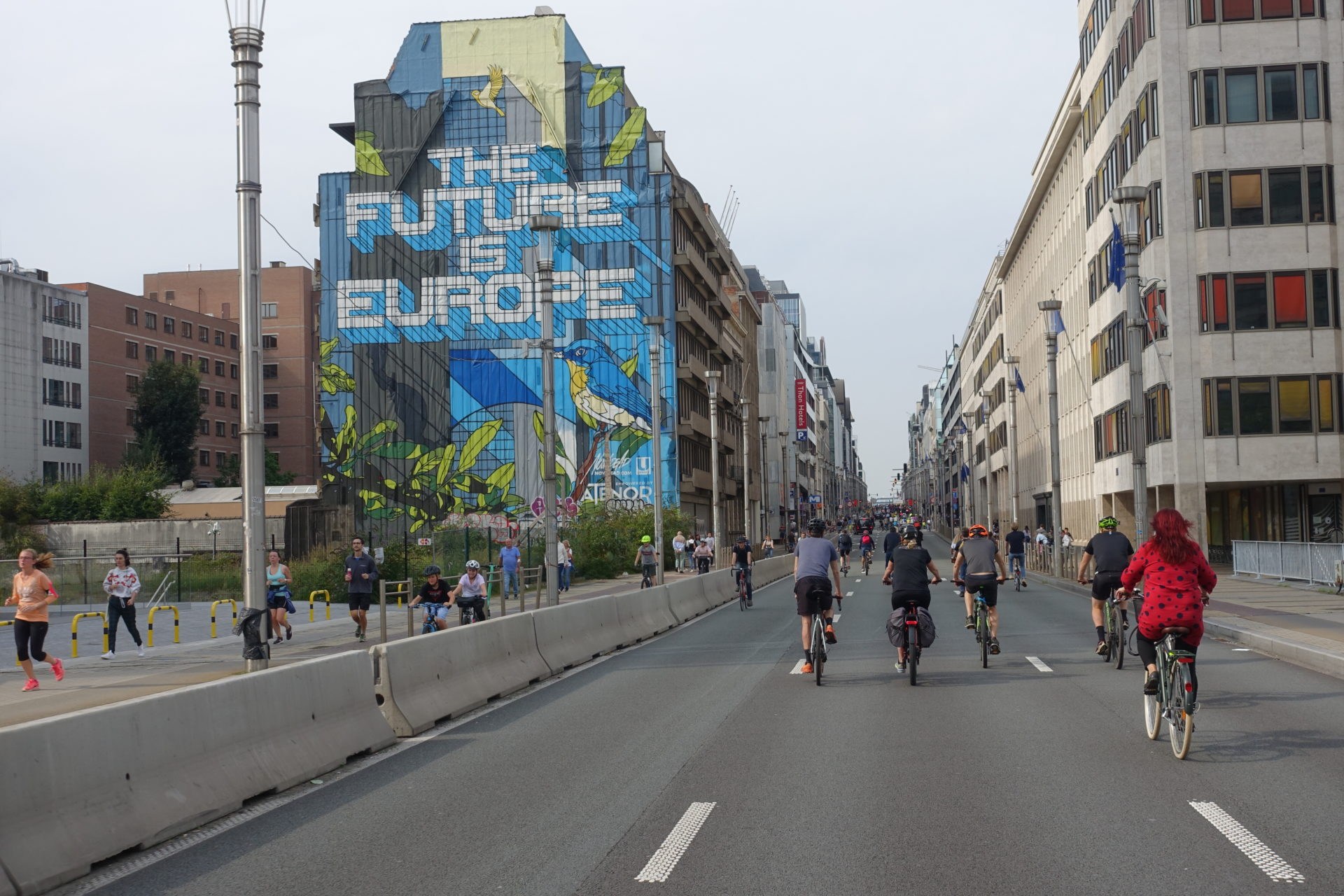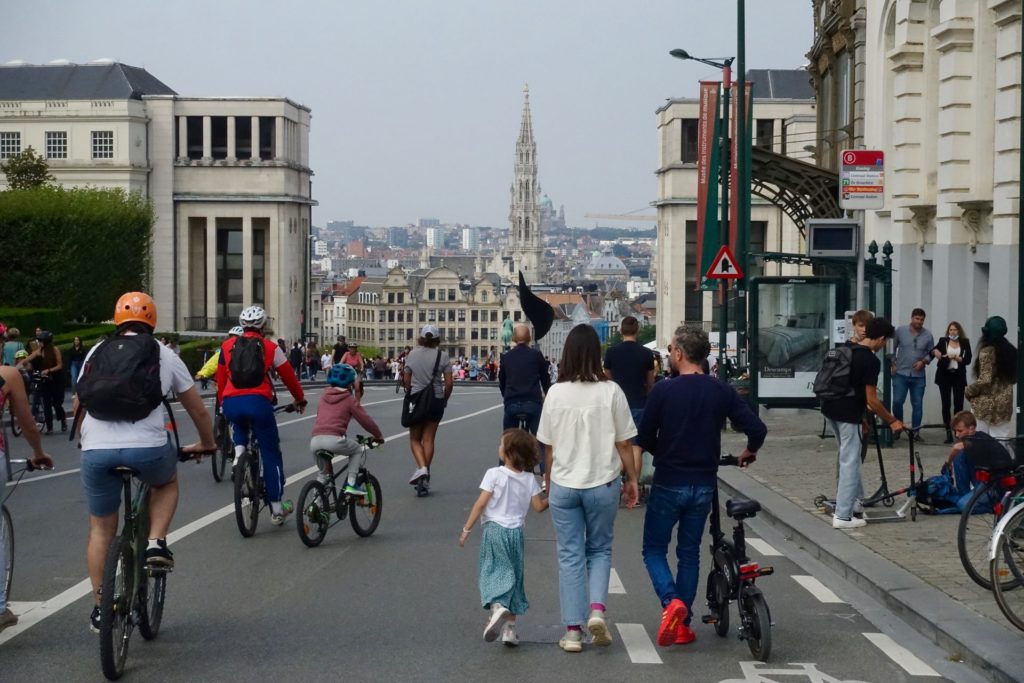The Government of the Brussels-Capital Region is exploring the possibility of increasing the number of car-free days in the region, something which a recent survey showed most Brussels residents would be in favour of.
In April this year, it was reported the Brussels government is considering a monthly car-free day from 2023 to lessen dependence on oil and as a result of the hike in fuel prices. The days would always be organised on Sundays, as is the case now with the annual car-free day.
A survey published by the Clean Cities campaign among 1,000 Brussels residents showed that the majority of the region's residents are in favour of increasing the number of days that cars make way for vulnerable road users and that 58% of them are even in favour of one car-free day per week.
"Brussels citizens are in favour of more car-free days, which are good for combatting pollution and for their wallet," Marie-Charlotte Debouche, coordinator of the Clean Cities campaign in Belgium, said.
"Their implementation must be accompanied by structural measures allowing the transition to cleaner mobility," she added, referring to measures such as the Low Emissions Zones (LEZ) in Brussels.
Effect on pollution levels
The last car-free day in the region was once again proof that fewer cars on the streets of the Brussels Region result in better air quality.
Based on data from Brussels Environment, showing a direct comparison between one of Brussels’ busiest intersections on a normal day and one without cars, there was a significant drop in the concentrations of several pollutants.

Cyclists enjoy free reign of the roads on Car-Free Sunday in Brussels. Credit: Orlando Whitehead
At the station on Arts-Loi, NO2 concentrations were 86% lower on a car-free Sunday than on an average Sunday and 92% and 91% lower than on an average weekday.
Meanwhile, data shared by the Clean Cities campaign showed that each car-free day in Brussels saves up to nearly one million litres of fuel. If organised during the week, it could save between 1.1 and 1.4 million litres of fuel, which could save people between €2.2 and 2.8 million with the price of fuel at its current rate.
"The Brussels Region has the possibility to act very concretely against the financing of Russian weapons, against heat waves and against pollution peaks. All it has to do is limit the number of cars on its streets and thus reduce its oil consumption," Pierre Dornier, President of the ASBL Les Chercheurs d'Air, said.
Aside from the energy benefits and the near absence of cars in the capital, the car-free day also resulted in reduced noise, with levels especially reduced at measuring stations located near motorways.

